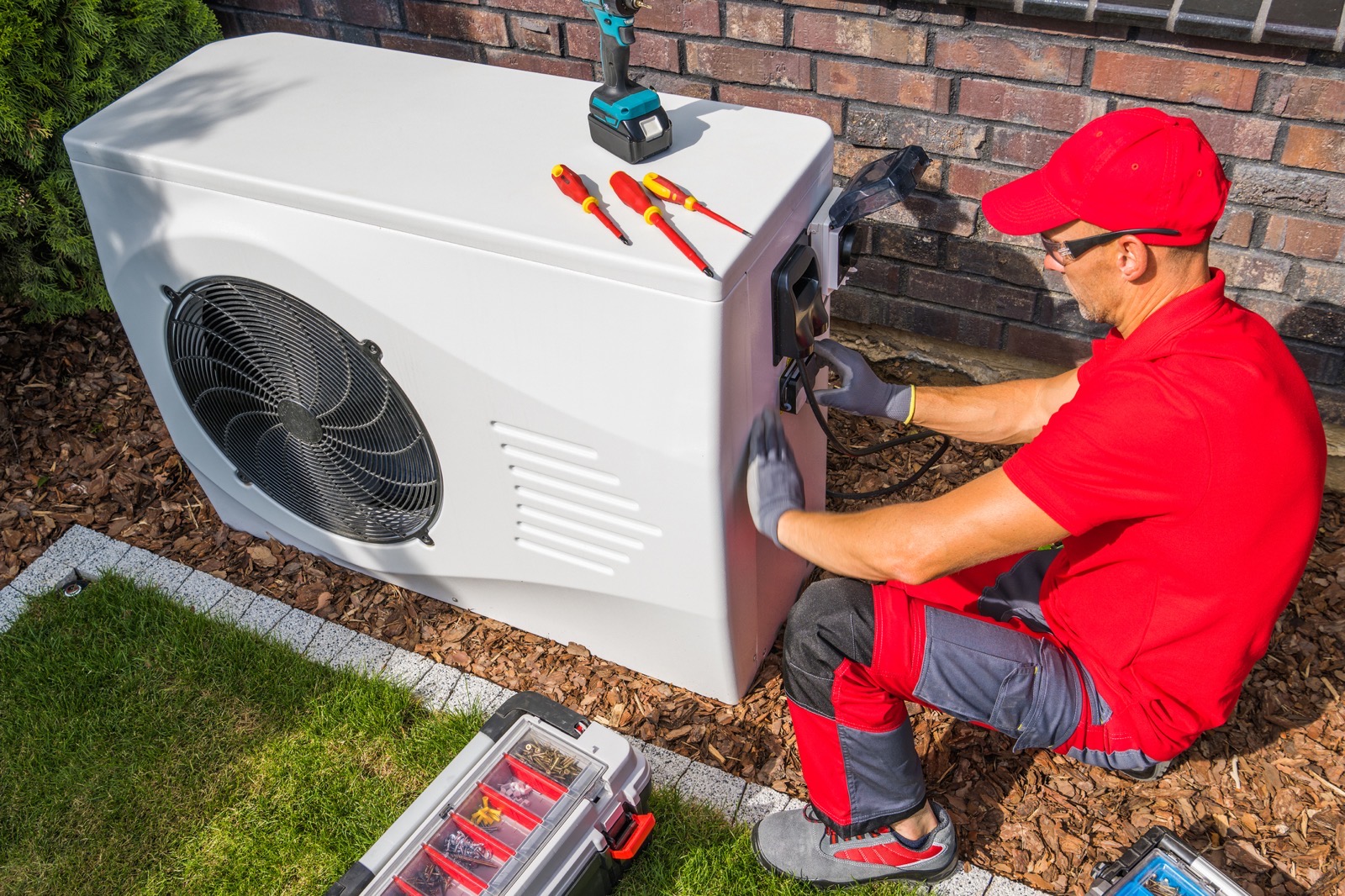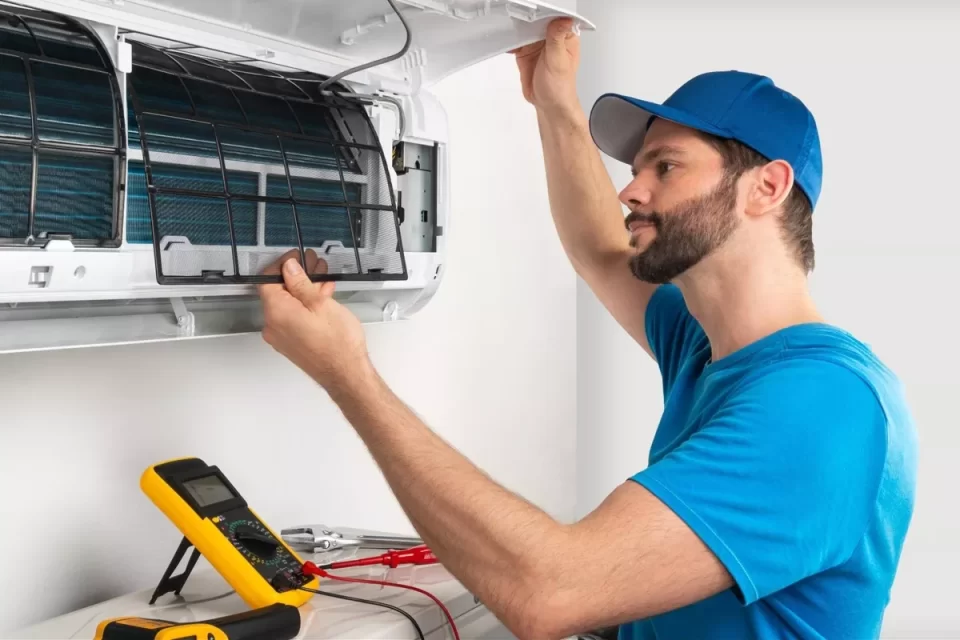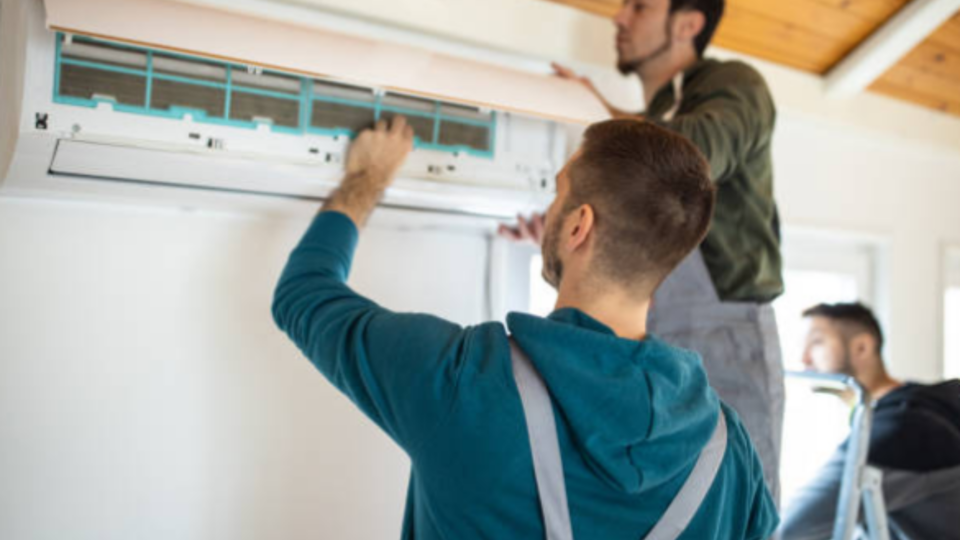When the chill of winter or the heat of summer makes its way into your home, one of the most reliable pieces of equipment you rely on is your heat pump. These systems work year-round, providing heating in the winter and cooling in the summer. However, as time passes, your heat pump can start to show subtle signs that it’s reaching the end of its life—or worse, that it’s already operating inefficiently. Waiting until your heat pump completely fails could lead to an uncomfortable home and expensive emergency repairs.
But how do you know when it’s time for a replacement? Heat pump issues often begin quietly, so it’s important to pay attention to the warning signs before they turn into bigger problems. In this blog, we’ll explore the subtle signals that indicate it might be time to replace your heat pump, the role unusual noises play in identifying problems, how rising energy consumption points to inefficiency, and when it’s best to replace an old or inefficient unit.
What Are The Warning Signs That Indicate A Heat Pump Replacement Is Necessary?
Heat pumps are designed to last around 10 to 15 years, but like any major appliance, their performance can degrade over time. If your heat pump is aging or showing signs of trouble, it’s crucial to be proactive. Here are the most common warning signs that a replacement may be needed:
1. Inconsistent Temperature Control
One of the first signs that something may be wrong with your heat pump is inconsistent heating or cooling. If your home isn’t reaching the temperature set on your thermostat or if certain rooms feel warmer or colder than others, it’s a clear indication that your heat pump may be struggling to function correctly. A faulty heat pump often has trouble regulating temperatures evenly, leading to uncomfortable conditions inside your home.
- Possible causes: Blocked or dirty filters, refrigerant issues, or a failing compressor.
- Solution: If cleaning or repairing the existing system doesn’t resolve the issue, it could be time for a replacement.
2. Frequent Cycling On and Off
Another sign that your heat pump may need replacing is frequent cycling. A heat pump that turns on and off repeatedly throughout the day may be suffering from an internal issue. While it’s normal for a heat pump to cycle, an excessive or short cycle is typically a sign of a problem. This is often referred to as “short-cycling,” and it can occur for a variety of reasons, including issues with the thermostat, refrigerant leaks, or a failing compressor.
- Cause: Short cycling increases wear and tear on the unit, causing it to work harder and wear out faster.
- Solution: A professional technician can inspect the system, and if internal parts are failing, replacement might be the most cost-effective solution.
3. Higher Repair Costs
As heat pumps age, they require more maintenance and repairs. If you find yourself calling for frequent repairs or facing hefty repair bills, this could be a sign that your unit is nearing the end of its lifespan. When the cost of repairs starts to approach 50% or more of the cost of a new system, replacing the heat pump becomes a better long-term investment.
- Cost analysis: Compare the repair costs with the cost of a replacement and consider the long-term savings of a more efficient system.
- Decision point: If your heat pump has already required several costly repairs over the last few years, it’s probably time to consider a replacement.
How Can Unusual Noises From A Heat Pump Signal The Need For A Replacement?
A heat pump doesn’t have to be completely silent, but certain noises can indicate trouble brewing inside your system. While some sounds are normal, such as a slight hum or gentle fan noise, anything outside of this range could be signaling that your heat pump is on its last legs.
1. Grinding Noises
If you hear a grinding noise, it typically means that something inside the unit, like the motor or fan, is malfunctioning. This could be caused by a worn-out bearing or another internal component that’s failing. While a repair might temporarily resolve the issue, it could indicate a larger problem, especially if the heat pump is already older.
- Why it matters: If left unchecked, the grinding could cause permanent damage to the motor or compressor, resulting in a total system failure.
- Replacement: It’s important to consult a professional if you hear this noise. In many cases, the cost of replacing a broken motor or compressor might be more than the cost of replacing the entire unit.
2. Banging or Clanking Sounds
Banging or clanking noises can occur when there are loose parts inside the heat pump. These sounds are often a sign that components like the fan or other mechanical parts have become loose or misaligned. While this might seem like a minor issue, it can lead to larger problems over time.
- Possible causes: Loose fan blades, broken motor mounts, or parts that have come apart internally.
- When to replace: If these noises are persistent, the issue could be internal damage to key components. In this case, it may be more cost-effective to replace the entire unit.
3. Hissing or Whistling Sounds
Hissing or whistling sounds often signal a refrigerant leak. When refrigerant levels drop, the heat pump cannot effectively heat or cool your home, and the system may eventually fail. If you hear a hissing sound, it’s essential to call in a professional immediately.
- Why it’s important: Refrigerant leaks can be dangerous and costly to fix. Once the refrigerant leaks out, the compressor and other components may be damaged, leading to a complete system failure.
- Replacement decision: If the refrigerant leak is substantial, or the system is old and requires expensive repairs, replacing the heat pump is usually the best solution.
Why Does Rising Energy Consumption Suggest A Failing Heat Pump?
One of the clearest signs that your heat pump is failing or inefficient is a noticeable spike in your energy bills. A well-functioning heat pump should use energy efficiently to heat or cool your home. However, as a heat pump ages or experiences mechanical issues, it often consumes more energy to achieve the same results. Here’s why that happens:
1. Diminished Efficiency
As a heat pump ages, its components, such as the compressor, fans, and coils, become less efficient. This means the system has to work harder to maintain the same level of heating or cooling. In turn, this increased workload results in higher energy consumption and higher monthly utility bills.
- Long-term costs: Over time, a system that uses more energy will not only increase your bills but could also require expensive repairs.
- Energy loss: Older systems often fail to maintain the ideal refrigerant levels, or they may have worn-out seals or insulation that leads to energy loss, further driving up costs.
2. Inefficient Heat Exchange
A heat pump works by transferring heat from the outside air to the inside of your home during winter and vice versa during summer. If the system is no longer able to transfer heat effectively due to poor coil function or a failing compressor, the unit will consume more power to maintain temperature levels, raising your energy consumption.
- Solution: Installing a new, energy-efficient heat pump could save you up to 20-40% on your heating and cooling costs, depending on the model and system efficiency.
3. Frequent Cycling
As we mentioned earlier, if your heat pump frequently cycles on and off, this could cause higher energy usage. Short cycling happens when the unit is unable to properly regulate the temperature, making it constantly start and stop, wasting energy.
- What to do: If your unit is short cycling, it’s important to have a professional check the system. Often, this behavior is caused by internal issues, such as dirty coils or faulty thermostats, which can increase energy consumption.
- Replacement: If these problems are recurring and repairs aren’t effective, it may be time for a new system.
When Should Homeowners Consider Replacing An Old Or Inefficient Heat Pump?
If your heat pump is more than 10 years old, you’re likely dealing with an inefficient system, even if it hasn’t shown major signs of failure yet. As energy standards improve, new heat pumps are built to work more efficiently, save on energy bills, and be more environmentally friendly. Here’s when you should start considering a replacement:
1. After Multiple Expensive Repairs
If you’ve been putting money into repairs for years, it may be time to cut your losses and invest in a new heat pump. Frequent repairs, especially when parts like the compressor or motor need replacing, can add up quickly. The cost of replacing these major components may outweigh the price of installing a brand-new, energy-efficient model.
2. When Your Energy Bills Are Constantly Rising
If you’ve noticed a significant increase in your energy bills year after year, it’s a sign that your heat pump is becoming less efficient. Replacing your heat pump with a newer model that meets modern efficiency standards could save you money over time and help reduce your carbon footprint.
3. If You’re Experiencing Inconsistent Comfort
If your heat pump is no longer providing consistent temperature control throughout your home or it’s struggling to reach the set temperature, it may be time to replace it. An inefficient heat pump can cause uneven heating and cooling, making your home less comfortable and costing more in energy.
4. When You Want to Improve Home Value
A new, energy-efficient heat pump can increase the value of your home, especially if you’re planning to sell. Buyers are increasingly looking for homes with modern, efficient HVAC systems that offer long-term savings and reliable comfort.
Your heat pump is an essential part of keeping your home comfortable throughout the year, but like all systems, it has a finite lifespan. If you’re noticing any of the subtle signs mentioned here—whether it’s unusual noises, rising energy bills, or frequent repairs—it may be time to consider a replacement. Ignoring these signals could end up costing you more in the long run.
Replacing an old or inefficient heat pump with a newer, energy-efficient model can lead to lower energy bills, improved comfort, and peace of mind. If you’re unsure about the condition of your system, it’s always a good idea to call in a professional HVAC technician to assess your heat pump and provide recommendations. The sooner you address the issue, the sooner you can enjoy a more efficient, reliable, and cost-effective heating and cooling system for your home.
Keep Your Home Comfortable Year-Round with Elite Air & Heat of SummerVille
At Elite Air & Heat of SummerVille, we specialize in providing top-notch HVAC services, including heat pump replacement, maintenance, and repair. Whether you’re facing an inefficient heat pump, experiencing rising energy bills, or noticing inconsistent temperatures in your home, our expert technicians are here to help. We provide fast, reliable service and ensure that your heating and cooling systems operate at peak efficiency, saving you money in the long run.
Contact Elite Air & Heat of SummerVille today to schedule your heat pump evaluation, replacement, or repair. Let us help you keep your home comfortable throughout every season, with energy-efficient solutions that you can count on. Don’t wait for issues to get worse—take proactive steps to ensure the comfort and efficiency of your home today!





